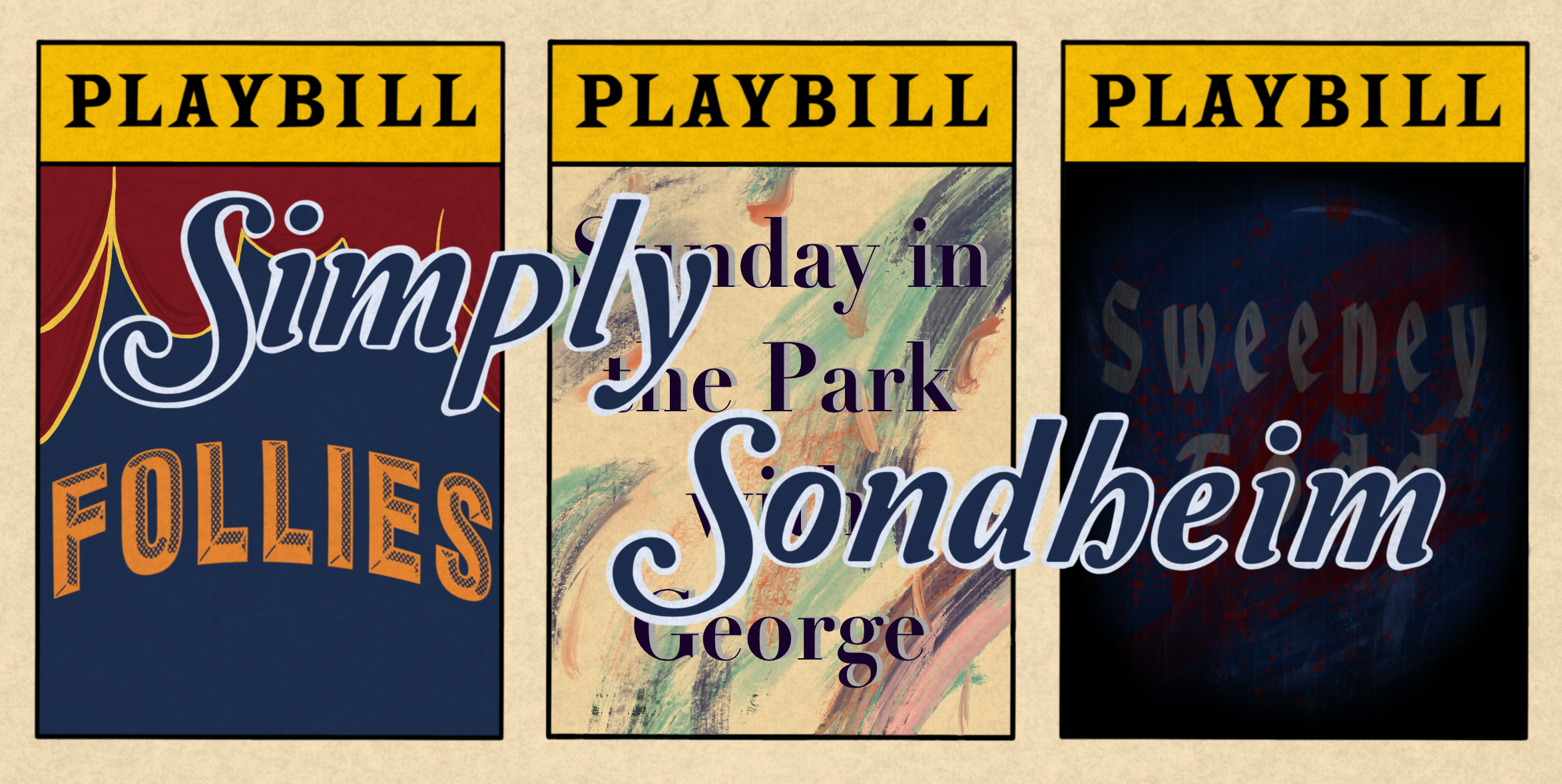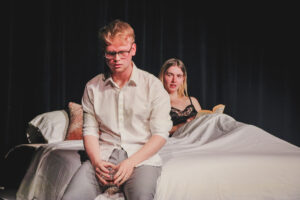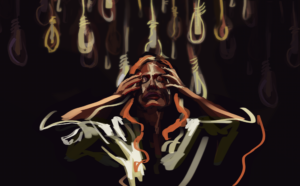A theater is never truly empty. Even when it is not being used, a ghost light sits on stage, illuminating a venue that would otherwise be completely dark. Since the COVID-19 pandemic closed theaters across the U.S., these lights have been the only ones in normally vibrant performance spaces.
These haunting representations of the pandemic’s impact on live theater line the back of the stage of Simply Sondheim, Signature Theatre’s revue concert of composer Stephen Sondhiem’s work. As COVID-19 shutters performance venues, Simply Sondheim sets out to recapture the spirit of live theater in a time that lacks it. It is a triumph of ingenuity and artistry, and it will fill a hole in the heart of anyone eagerly waiting to return to the theater.
Simply Sondheim is just that: simply Sondheim. The revue concert contains no dialogue, offering only a collection of Sondheim’s work, both well-known classics and hidden gems. The lack of contextualization makes some of the numbers difficult to understand without deep knowledge of the plots of his musicals. However, the show mainly features solos and duets, which can be extrapolated from the oftentimes convoluted and demoralizing storylines, and thus may stand alone. The music speaks for itself; it is a commentary on people, love, and relationships. And when portrayed in this way, in this order, with these deliberate cuts, it is allowed to invigorate and inspire.
Simply Sondheim boasts an impressive cast of theatrical veterans and Signature regulars alike, including Broadway’s Norm Lewis and How to Get Away with Murder’s Conrad Ricamora. Solea Pfeiffer, best known for her performance as Eliza in the first national tour of Hamilton, comes away as a standout; her ability to command a stage shines even through the screen. Bobby Smith, no stranger to Signature Theatre, shows a remarkable range of ability in his performances, and Donna Migliaccio, another Signature staple, nails the comedic timing of Sondheim’s lighter work with ease. There is not a weak link in the cast—each performer brings a distinctive emotional connection to the material.
The revue works hard to emulate live theater for a home audience. After taking significant COVID-19 precautions, the cast and crew shot the performance without masks and social distancing over the course of three days on a Signature stage. As a result, the performance feels surprisingly authentic. Even the editing, with its fade-outs and quick switches between songs, ensures that the lack of applause after each show-stopping performance is not jarring. The brilliant lights and the triumphant new orchestrations by longtime Sondheim collaborator Jonathan Tunick work together to bolster the dynamic performances. It is a breath of fresh air, and for a moment, audiences are almost able to lose themselves in a piece of art.
If the idea is to spread a little hope, Simply Sondheim delivers with flying colors. The revue is aware of the moment but often chooses not to bathe in it, editing songs to signify hope rather than gloom.
The show opens with “Merrily We Roll Along,” the titular number from Sondheim’s spectacular 1981 flop, exploring dashed dreams and past turning points. In the musical, the song asks, “How did you get to be here? / What was the moment?” But in the revue, this line is gone, replaced with a mash-up with the titular number from Bounce, encouraging the audience to rebound from setbacks and forge ahead. “Merrily,” often denounced for its cynicism, becomes what its title suggests it should be about: rolling with the punches.
This theme is seen throughout. Gone is the cynical first verse of “Being Alive.” The number instead starts with a cry for human affection, a cry for “someone to crowd you with love.” The closing number, Merrily’s “The Hills of Tomorrow,” features the cast staring into the camera, telling us to just hang on because tomorrow will surely be brighter.
Most of Simply Sondheim could be transplanted and performed for a live audience, but the film medium certainly allows for experimentation in staging. A Little Night Music’s “Now/Later/Soon,” an early highlight, innovates in its use of perspective. The three singers, Bobby Smith, Katie Mariko Murray, and Nicholas McDonough, stand perpendicular to one another, and it becomes clear that the characters are not communicating, each in their own world.
The Act II opener, “Something Just Broke” from Assassins, a number recounting where people were when they found out President John F. Kennedy had been shot, is one of the only times the empty house is visible, and the rows of vacant chairs are poignant. Unlike any other number, “Something Just Broke” asks us to engage with our political climate, to recognize how dysfunctional it has become, and to reconcile what specific choices led to this performance being done in its distinct manner. One of Broadway’s most brilliant works, the number reminds us Sondheim was never meant to be sung for an audience of none.
Simply Sondheim is, technically, just a concert. Though it has themes and even observable throughlines, it certainly has no plot. And yet, there is something powerful about a group of artists coming together to sing their hearts out onstage. This is the sliver of hope that people, especially those that crave live theater, need. For a little while longer, filmed performances must be the substitute, but if they all look like Simply Sondheim, perhaps we will be able to hold out until that day we can all take our seats in the audience once more.
Simply Sondheim is streaming on demand through April 16th on Marquee TV. Student tickets can be purchased for $5.







